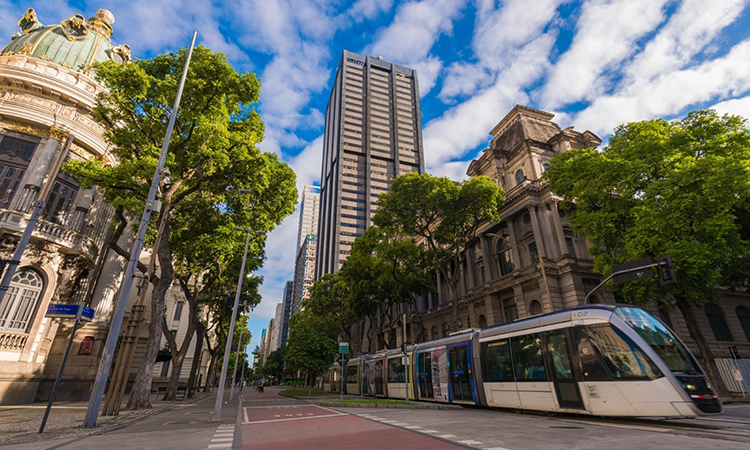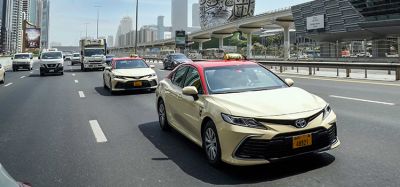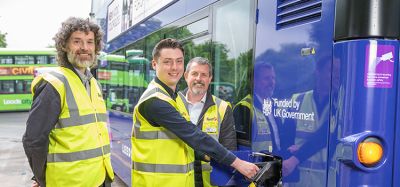New UITP report offers guidance on industry’s transition to renewable energy
- Like
- Digg
- Del
- Tumblr
- VKontakte
- Buffer
- Love This
- Odnoklassniki
- Meneame
- Blogger
- Amazon
- Yahoo Mail
- Gmail
- AOL
- Newsvine
- HackerNews
- Evernote
- MySpace
- Mail.ru
- Viadeo
- Line
- Comments
- Yummly
- SMS
- Viber
- Telegram
- Subscribe
- Skype
- Facebook Messenger
- Kakao
- LiveJournal
- Yammer
- Edgar
- Fintel
- Mix
- Instapaper
- Copy Link
Posted: 24 January 2023 | Intelligent Transport | No comments yet
The new UITP report offers the public transport industry guidance and examples of best practices from across the globe in achieving a successful energy transition.


Credit: UITP
For many years, a significant proportion of public transport operations have relied on the use of fossil fuels. However, public transport is an energy-efficient mode of travel and is already partially powered by electricity, positioning the sector as a leading provider of sustainable transport.
On 24 January 2023, the International Association of Public Transport (UITP) released a new report, titled “The Road to Sustainability: Transition to Renewable Energy in Public Transport”, which provides guidance on how public transport undertakings can achieve a successful energy transition to their decarbonisation goals, including examples of best practices from across the globe.
The report covers energy use in today’s public transport; decarbonisation of mobility and the role of public transport, the challenges, and perspectives on differing energy markets segments to the schemes available and setting up the energy transition and assessing the impacts.
To maintain this leadership role and take its share of the burden of reducing emissions, the sector is currently decarbonising its activities by transitioning to renewable energy sources. This includes the electrification of vehicle fleets (including buses, boats, shared cars and trains) and investing in fleets powered by other alternative energy sources, such as hydrogen or biofuels.
For the sector to achieve this transformation and meet its decarbonisation objectives, it must invest in new green fleets to ensure that they have access to green and renewable sources of energy.
Roundtable: Driving a more sustainable transport industry forward with e-mobility
Elisabetta Tromellini, Head of CSR – Sustainability at FNM S.P.A and Chair of UITP’s Sustainable Development Committee, said: “This report gathers a year’s worth of work between the UITP Sustainable Development Committee and other UITP members who kindly contributed to our working group. Over the course of 2022, the energy topic grew in importance for many, and I believe the hard work all our contributors put into this report should support the sector in facing the energy and climate crisis. Stay tuned in the coming months for more on the topic of renewable energy.”
The energy transition of our societies will be one of the challenges to overcome in the upcoming years to achieve climate objectives. While the transition towards alternative fuel technologies is ongoing in the public transport sector, renewable energy supplies is currently not as well covered in energy transition strategies. The energy supply for existing fleets and other public transport assets must not be ignored by any public transport stakeholders in striving for CO2 benefits.
Renewable energies supply will differ from one context to another, which is why it is important to understand the legal context and local energy markets. Working in cooperation with an energy provider/developer, municipalities and other energy consumers facilitates the deployment of new renewable electricity assets and a supply of renewable fuels.
Arthur Cormier, UITP’s Sustainable Development Committee Manager, said: “The transition to renewable energy is an outstanding opportunity for the public transport sector to reaffirm its leadership position as a provider of sustainable mobility. Across all assets, the energy transition only strengthens benefits of public transport and should be on the agenda of all stakeholders in the sector.”
In addition to decarbonisation benefits, the energy transition and shift to renewable energy supplies have other strong added values in terms of operations, public transport users, citizens and cities. Emphasising this can be key to finance the energy transition, get public approbation and, ultimately, improve the image and strengthen the benefits of public transport within our societies.
If you liked this, you may also be interested in:



Related topics
Air Quality, Alternative Power, Fleet Management & Maintenance, Public Transport, Sustainable Urban Transport
Related organisations
International Association of Public Transport (UITP)
Related people
Arthur Cormier, Elisabetta Tromellini








